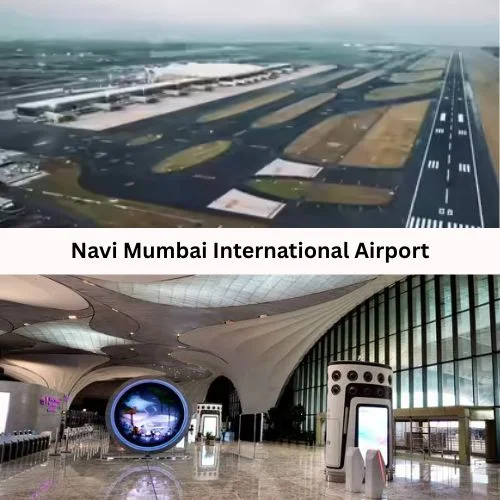On Wednesday, Prime Minister Narendra Modi opened the highly awaited Navi Mumbai International Airport, a moment that marks a milestone for India’s financial capital and the raised aviation infrastructure in an economy that is ranked as the world’s largest country by population. Built by Adani Group at an estimated value of $2.2 billion, it is one of the largest infrastructure developments in India and is constructed to address the demands for air travel and cargo transportation needs in the world’s most populated country.
Scheduled to open in December, Navi Mumbai International Airport will position Mumbai as the only area in India with two international airports. This will help reduce congestion at the long-strained local air capacity of existing Chhatrapati Shivaji Maharaj International Airport. once open, the airport will operate an important international hub for passengers and cargo thereby strengthening Mumbai’s link to the international aviation and cargo gateway.
The initiation of this project signifies India’s commitment to modernizing infrastructure, expanding air service, and supporting economic growth, particularly as it relates to India’s broader national growth strategy. Over the last 10 years, the country has undergone profound changes in the aviation sector, doubling its number of operational airports from 74 in 2014 to 160 airports in 2024 as part of its regional air transport program directed at linking smaller cities and increasing cargo efficiency, precisely the vision called for in India’s national development agenda of making air travel a primary engine for national development.
While the Navi Mumbai International Airport is first and foremost an infrastructure project, it also represents a significant change in the face of urban and economic growth in India. Because of its strategic location in Navi Mumbai, the airport is expected to promote logistics, job creation in the tens of thousands, and will attract domestic and international investment from around the Indian subcontinent. In addition to these objectives, the airport will also integrate sustainability principles and modern design approaches with advanced technologies to mitigate its environmental footprint.
India’s demand for air travel is growing rapidly, driven by rising wages, tourism, and business activity, so projects like Navi Mumbai International Airport are vital to fulfilling India’s future needs. For Mumbai, the opening is more than just another building in the skyline; it symbolizes the beginning of a new aviation era that mirrors India’s ambitions to be a global hub of connectivity, commerce, and innovation.












More Stories
India Closer to a Naxal-Free Future: Amit Shah’s Audacious Deadline
Education sector sees new initiative to support IELTS test preparation
India and UK Chart Roadmap for Implementing Historic Free Trade Agreement